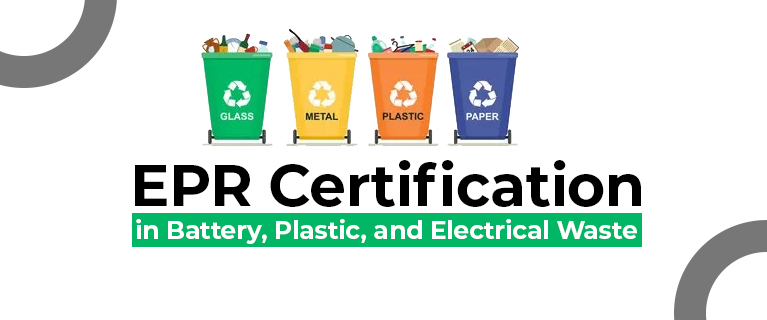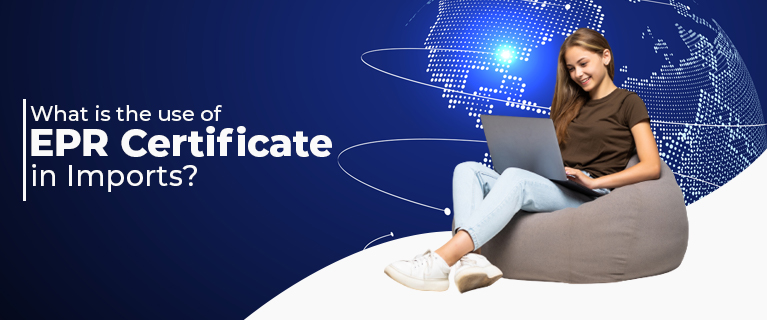EPR certification in Battery, Plastic, and Electrical Waste

In an era marked by heightened environmental awareness, the concept of Extended Producer Responsibility (EPR) has gained significant traction. EPR certification serves as a testament to an organization's commitment to managing various types of waste responsibly. In this blog, we'll delve into EPR certification specific to battery waste, plastic waste, and electrical waste, examining their importance, requirements, and impact. 1. Battery Waste EPR Certification: Battery waste poses unique environmental challenges due to the presence of hazardous materials such as lead, cadmium, and mercury. EPR certification in battery waste management focuses on ensuring the safe collection, recycling, and disposal of used batteries. These certification typically require compliance with regulations governing battery recycling, as well as adherence to best practices for handling hazardous materials and preventing environmental contamination. Achieving certification demonstrates a producer

